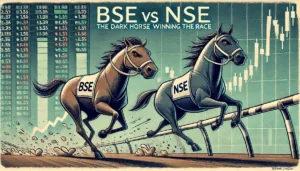Why Market Forecasts Often Fail
Every year, Bloomberg collects predictions from analysts about how the S&P 500 index will perform. These forecasts are represented as pink bars, while the actual returns are marked with a black diamond.

This data has been tracked for over 25 years, revealing an interesting trend—most of the time, actual returns deviate significantly from the forecasts.
Always Missing the Mark
For instance, in 2024, analysts predicted that the S&P 500 would return around ±10%. However, the market actually rose by 27%. In 2023, the forecast ranged between -10% and +25%, and the market ended up exactly at the upper edge: +25%. Over the last eight years, actual returns have matched forecasts only twice. In other years, they fell well outside the projected range, and at times, they even went in the opposite direction.
Why Forecasts Go Wrong
There are many reasons why forecasts fail. Analysts may utilize data, trends, and models, but the market remains unpredictable. Numerous unexpected events—such as political changes, global conflicts, or economic shocks—can impact market performance. No forecast can fully account for these uncertainties, which is why actual returns often take everyone by surprise.
The Impact on Mutual Funds
Most mutual funds depend on these forecasts. Fund houses typically have two teams: one that conducts research and makes projections, and another that makes investments based on those projections. If the research is incorrect, the investment strategy can also falter. This is why some funds underperform, even with expert teams managing them.
Two Ways to Invest
This leads to an important distinction in investing styles:
- Forecast-Based Investing: This is the more common approach, where investors depend on expert predictions and market research to guide their decisions.
- Price-Based Investing: This approach is less common, as investors focus on market prices and trends rather than relying on projections.
Over 95% of investors still follow the forecast-based strategy, while a small group concentrates solely on actual market movements, disregarding predictions altogether.
What This Means for You
The key takeaway is that forecasts are often inaccurate. Making investment decisions purely based on projections can be risky. It might be wiser to closely observe the market and follow trends. The more adaptable you are, the better your chances of success.
Have you ever followed a market forecast that didn’t pan out? What lessons did you learn from it? Share your thoughts in the comments below! If you found this blog helpful, don’t forget to SHARE it with your friends!










